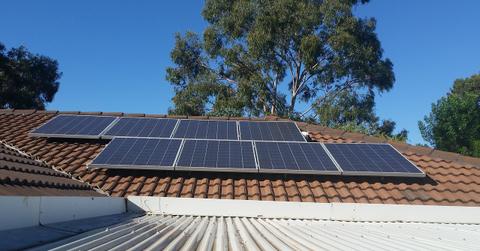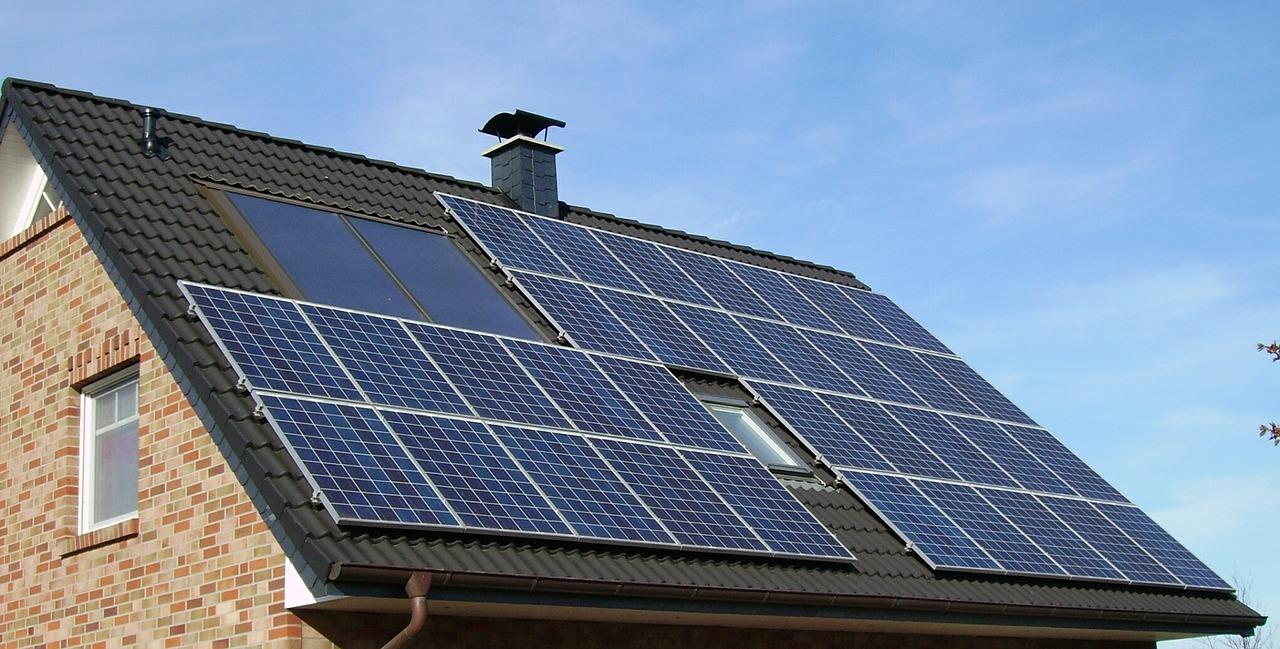California Just Became The First State To Require Solar Panels On All New Homes
The Sunshine State is already a power player in the renewable energy industry and it's expected to get bigger. A mandate could be set in 2020 for most new residential buildings to install solar panels, which creates pros and cons for an expensive housing market.
Updated May 15 2019, 6:10 p.m. ET
California could be the first state to mandate solar panels on new homes. The state’s Energy Commission will vote next week on new regulations that would be effective in 2020, requiring new homes to have solar energy capability. While it provides clean power and net-zero potential, there are some worries of how it could affect the housing market.
The vote will be held next Wednesday with the mandate expected to pass. If so, it would skyrocket the amount of single-family homes that have solar panels installed, which sits between 15 and 20 percent. At the moment, San Francisco and a few other California towns require any new buildings under 10 stories to have solar panels.
All houses, condos, and apartment complexes up to three stories tall will all require solar panels if they apply for a building permit after the first day of 2020. Achieving net-zero energy is not a requirement, meaning panels don’t have to match how much power is being drawn. If the building’s roof is too small or located in an area where it can’t receive adequate sunlight, the requirement will be lifted.
“California is about to take a quantum leap in energy standards,” Bob Raymer, technical director for the state’s Building Industry Association, told The Mercury News. “No other state in the nation mandates solar, and we are about to take that leap.”
The Sunshine State’s solar demand slowed up a bit last year with excess renewable power being generated. There was so much of it that the state’s utility companies had to pay other states so the power grid wouldn’t overload. To avoid this in the future, it’s anticipated that the state and homeowners will have more battery storage as costs go down.
Focus will be on residents achieving more than just net-zero energy in their living accommodations. Even if they offset their power consumption, homes will still pull from a grid that uses fossil fuels. They’ll add incentives for buildings that have a Tesla Powerwall system for energy storage and there won’t be a need for a large solar array.
“Zero net energy isn’t enough,” Andrew McAllister, commissioner of the California Energy Commission, told The Mercury News. “If we pursue (zero net energy) as a comprehensive policy, we’d be making investments that would be somewhat out of touch with our long-term goals.”
While requiring less panels and the addition of energy storage are good moves for a state that already generates a ton of renewable power, another problem is adding these costs to homes. California is one of the most expensive states to buy a house in with a median price of $565,000. These would only get higher with the addition of solar panels and tighter requirements for windows and insulation to improve energy efficiency.
The California Energy Commission believes this would add up to $10,000 in construction costs. However, CR Herro, VP of environmental affairs at real estate developer Meritage Homes, tells The Independent that construction would rise closer to $30,000. Homebuilding consultant Bill Watt also notes that this would create a bigger strain on the housing market.
An argument for the higher costs is the expenses would be recouped over the life of the energy system. Expected to last for approximately 25 years, homeowners would save up to $60,000 in operating costs and utility bills. The state’s new rate structure beginning in 2019 also gives an incentive to use energy storage during high-peak times when prices will be vastly more expensive.

